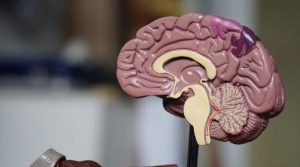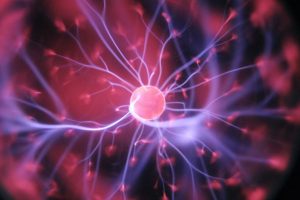The human brain – it’s the only organ that named itself! It’s what makes each of us who we are, and the machine that helps us make sense of the world. It goes without saying that humans should always be taking care of their brains, and that’s why people all around the world take one week each year to celebrate brain awareness.

Brain Awareness Week is a worldwide awareness campaign to get the public interested in the science of what is arguably the most important organ in the human body. It was started by the Dana Foundation in 1996 and has continued annually since then. It now has more than 7,300 participating partners including K-12 schools, colleges, advocacy groups, etc. in 120 countries. Brain Awareness Week events range anywhere from lectures to museum exhibitions, and they all seek to increase education and awareness about the brain and brain health.
So in recognition of Brain Awareness Week, let’s take a closer look at how we can better take care of our brains. Here are some tips for improving brain health:
- Exercise is one of the best ways to take care of your brain. Studies show that people who exercise regularly have a lower chance of developing diseases like Alzheimer’s and dementia. This is possibly due to the fact that exercise increases blood flow to the brain (Alzheimers.org).
- Social interaction is another important factor in brain health. The more we interact with friends and loved ones, the more our brains are stimulated. More brain stimulation lowers our chances of stress and depression, which take a huge toll on mental health (Physiology).
- Getting good sleep isn’t just important for your energy levels during the day. It also serves an important function in removing toxins from your brain which build up while you are awake (NINDS).
- Protect your head and avoid injuries! When you ride a bike or play a rough sport like football or hockey, make sure to wear a helmet. Protecting your head with a helmet can prevent your risk of getting a concussion or another head injury that can negatively affect the brain. Especially for young athletes, a concussion can negatively affect mental processes, which can mean a drastic reduction in academic performance.

And now that you know how to keep your brain healthy, here are some more facts about the brain that will hopefully make you more excited about Brain Awareness Week:
- Scientists have discovered that there is a link between a change in brain size and the amount of sleep a person gets. Generally, as someone loses the ability to fall asleep quickly, the size of the brain decreases. However, scientists still do not know whether it is the lack of sleep that causes a decrease in the size of the brain, or if the decrease in brain size causes a lack of sleep (AAN).
- The ancient Egyptians did not view the brain as an important organ. Or at least, not as important as other organs such as the heart. As such, they did not believe it would be required in the afterlife and removed it piece by piece through a person’s nose in the mummification process (UCL). The importance of the brain as the center of thought was first theorized by a Roman physician named Galen around 170 BC (University of Queensland).
- New parts of the brain are still being discovered by scientists. As recent as 2021, scientists discovered a new part of the brain that helps with the process of recognizing faces (Open Access Government)!
The brain is a fascinating thing, so this Brain Awareness Week, take a few moments to appreciate and learn more about the organ that makes you who you are!
Written by: Matthew Jenkins
Date: March 20, 2022
Sources:
https://brainawareness.org/about/
https://www.alzheimers.org.uk/about-dementia/risk-factors-and-prevention/physical-exercise
https://journals.physiology.org/doi/full/10.1152/physrev.00041.2007
https://www.ninds.nih.gov/Disorders/Patient-Caregiver-Education/Understanding-Sleep
https://www.aan.com/pressroom/home/pressrelease/1305
https://blogs.ucl.ac.uk/researchers-in-museums/2018/02/21/neuroscience-in-ancient-egypt/
https://qbi.uq.edu.au/brain/intelligent-machines/understanding-brain-brief-history
https://www.openaccessgovernment.org/brain-remembers-faces/114611/
